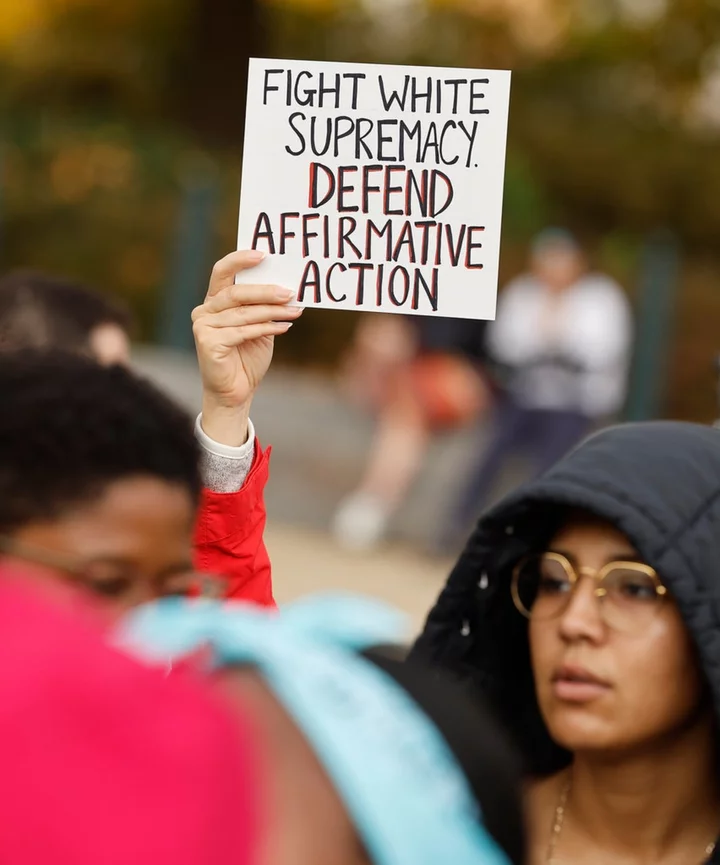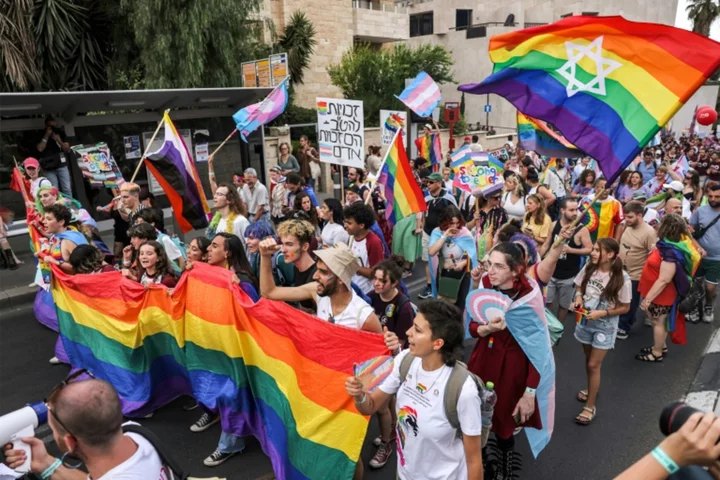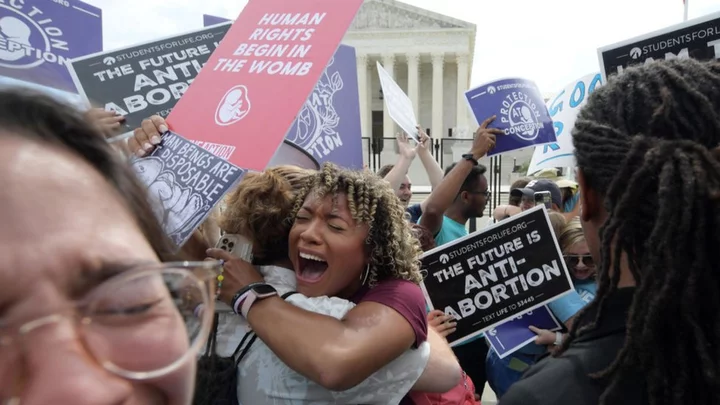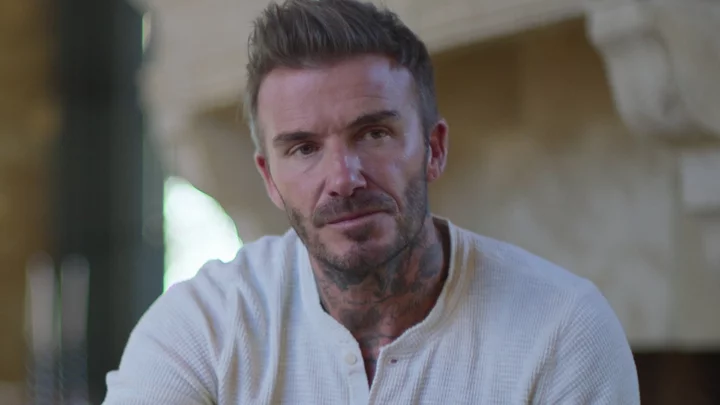The ongoing attacks on affirmative action are triggering memories of a college hookup: In my recollection, I can see us stumbling through our campus quad. Our friends at the dining hall tried to hide their knowing smiles, telling us to hurry back. Drunken midnight snacks could wait, but our hormones, apparently, could not, so we went back to my dorm together. He lifted me up and kissed me, trying to impress me with his display of strength.
Earlier that night, my dorm had hosted a wine and cheese night in its stately living room, perfectly scheduled a few hours before the annual sophomore dance, a university-funded excuse to dress up, party, and make out with someone on the dance floor.
As we munched on hard, flavorless cheese cubes and drank cheap boxed wine, the boy (let’s call him that, “the boy”) started flirting with me. I don’t remember exactly how it came up, but I do remember what he said to me in the midst of his flirtation: “It was easier for you to get in than it was for me.” “What do you mean,” I asked, genuinely not understanding. “Well, you’re a Latina from Florida,” he continued. “I’m a white guy from a northeastern suburb. Obviously it was more competitive for me.”
“I was forced to linger on affirmative action and, specifically, the question that had been marinating in the back of my mind for more than a year: Do I really deserve to be here?”
Tasha SandovalThat night was the first time in my adult life that I remember being directly questioned and othered, made to feel less than by virtue of my being Latina. It was also the first time I was forced to linger on affirmative action and, specifically, the question that had been marinating in the back of my mind for more than a year: Do I really deserve to be here?
Thirteen years later, the Supreme Court may drastically change the trajectories of generations of others like me. Its decisions through the years — including the landmark Regents of the University of California v. Bakke (1978), which established that race-conscious college admissions is constitutional, and Grutter v. Bollinger (2003), which upheld these kinds of practices as long as they didn’t “unduly harm nonminority students” — helped to create my unlikely path.
These decisions help explain how I — a Pell Grant-eligible, Cuban-Colombian young woman who emigrated from South America to South Florida — ended up with a full ride to an elite New England liberal arts college. Before these systems were in place, it seems that my journey would have been highly improbable — not because I was unworthy of it — but because it simply would not have been accessible.
“Before these systems were in place, it seems that my journey would have been highly improbable — not because I was unworthy of it — but because it simply would not have been accessible.”
TASHA SANDOVALBut before the end of June, the majority-conservative court will likely reverse the precedents set by Bakke and Bollinger — decisions that made my particular path less improbable. The Supreme Court will once again determine the constitutionality of affirmative action and race-conscious admissions with Students for Fair Admissions v. President and Fellows of Harvard College and Students for Fair Admissions, Inc, v. the University of North Carolina.
Students for Fair Admissions, a group led by conservative legal strategist Edward Blum, argues that Harvard discriminates against Asian-American students because they are less likely to gain admission than applicants of other races, and that UNC does not need to consider race in its admissions process to achieve racial diversity. Experts predict that the court’s conservative supermajority will overturn the Bakke ruling and deem race-conscious practices in the college admissions process unconstitutional.
When these oral arguments pummeled ahead last October, I kept thinking back to that wine and cheese night 13 years ago, to that moment when the boy suggested, in so many words, that I didn’t deserve to be where I stood. Not really. According to his logic, the college’s admissions committee had overvalued me in the name of institutional diversity. Today, I wonder if he even stopped to consider the merit of my education on its own.
“According to his logic, the college’s admissions committee had overvalued me in the name of institutional diversity. Today, I wonder if he even stopped to consider the merit of my education on its own.”
TASHA SANDOVALThere’s no doubt that in 2009, when colleges reviewed my application, they considered my Latine ethnicity during some stage of the admissions process. But that’s not the whole story. According to the holistic review process, schools also considered my Pell Grant eligibility, my high school leadership, and — first and foremost — my outstanding academic achievements.
The boy, meanwhile, effectively labeled me an affirmative action case who was less deserving of admission. But he didn’t take into account the extraordinary nature of my educational path, and that of others like me, in light of my low-income status or the multigenerational systemic barriers that often come with immigration. One study found that most high-achieving, low-income students don’t even apply to selective colleges. And yet, there I was.
I got there through a series of unlikely events. In 2005, my sister received an invitation in the mail for a multicultural weekend at the same New England college. Up until then, we had only experienced the Northeast and its four seasons through the fictional Connecticut town in Gilmore Girls. Charmed during that invitational weekend and with a major scholarship in tow, my sister enrolled the following fall.
“He didn’t take into account the extraordinary nature of my educational path, and that of others like me, in light of my low-income status or the multigenerational systemic barriers that often come with immigration.”
TASHA SANDOVALI visited during her sophomore year for family weekend and was completely mesmerized. At 15, I experienced my first fall. I still remember the heaping piles of foliage peppering the expansive quad. I didn’t feel othered — not yet.
A couple of years later, the college and other colleges like it pursued me, inviting me to multicultural weekends and other events that sought to recruit high-achieving students from underrepresented groups. By fall 2009, I was back on the quad as a first-year student.
I knew I had a different background from most of my peers, but I didn’t understand the extent of it. I didn’t take what the boy said that night as a putdown because I didn’t fully grasp it — no one had taught me the difference between equality and equity. Clearly, no one had taught him either.
The boy had wrapped me around his finger. He had slowly and knowingly captured my attention. But I had also gotten his attention. I was wearing a short, silvery green halter dress with a plunging neckline and satiny fabric that hugged my curves. It was the kind of attention I thought I wanted.
“The boy wanted me, even as he questioned my legitimacy as his intellectual equal. Perhaps even because of it. I wanted him, even after his words made me question my own intellectual legitimacy. I craved the validation.”
TASHA SANDOVALThe boy wanted me, even as he questioned my legitimacy as his intellectual equal. Perhaps even because of it. I wanted him, even after his words made me question my own intellectual legitimacy. I craved the validation.
As I sat on that washing machine, the boy’s hands on my body, I felt more validated by his desire than invalidated by his earlier insult. For years, I had deemed that night a success — a hookup with a cute boy whose attention I wanted and then captured. I remembered what he said to me, but I tried to store it away in the very back of my mind, in a place where I thought it couldn’t hurt me.
It’s only in the last couple of years that this memory has started to gnaw at me. It keeps coming up because I feel a sense of guilt for not standing up for myself. In those days, I didn’t know how — I didn’t have the right tools or words because I didn’t really understand the complexity of the dynamics at play.
“As colleges continue their pursuit of diversity, college students — especially those from the boy’s white, privileged echelons — need to believe in the value of diverse campus environments.”
TASHA SANDOVALI’d like to think a lot has changed since then, that campuses have become more diverse and that the culture has started having more honest conversations about equity and power. I’d like to think that someone in the same position today would have the right tools and words to stand up for themselves. But as these Supreme Court decisions loom, I keep thinking back to this particular memory, to a time when someone questioned my path to a highly selective college as a means of flirtation.
As colleges continue their pursuit of diversity, college students — especially those from the boy’s white, privileged echelons — need to believe in the value of diverse campus environments. There should be buy-in from everyone on campus and support for the notion that all students belong on that campus. Without that buy-in, students in positions of power may continue to call that belonging into question, examining their peers’ worth both inside and outside of the classroom.
Sometime before the Supreme Court goes into recess for the summer, the highest court in the land may cosign the legitimacy of the boy’s claims. I can only be grateful that I’ve come to believe, without a sliver of a doubt, that the boy was very wrong: It wasn’t easier.









